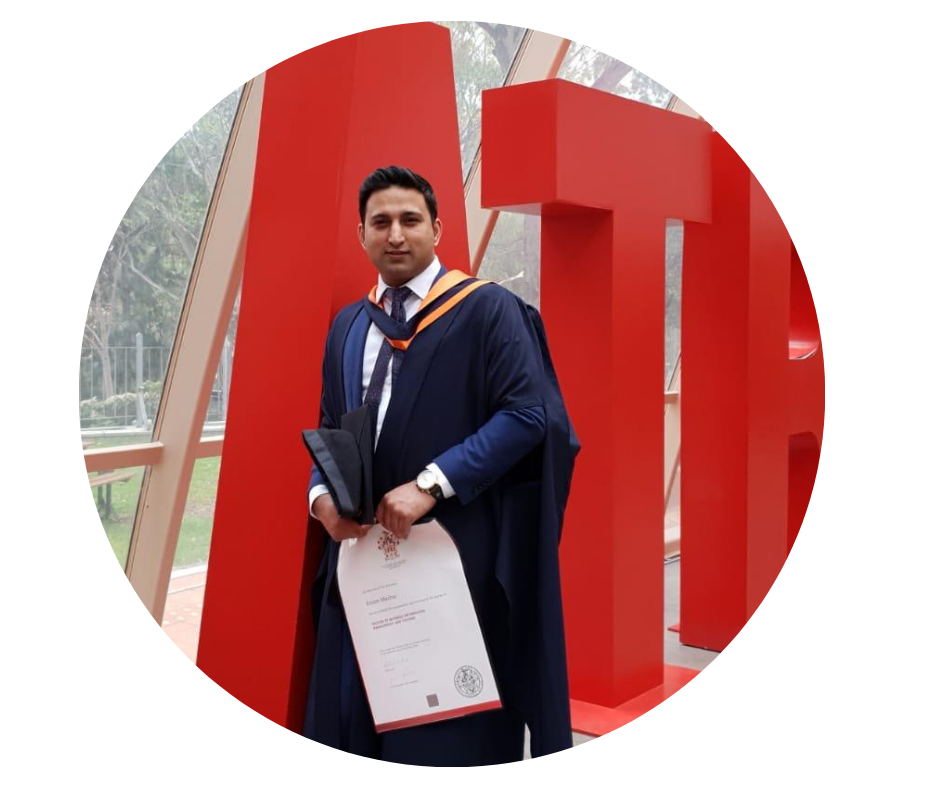1
Globally Recognized Degrees
Australian qualifications are respected worldwide and open doors to global career opportunities.
Discover why thousands of Pakistani students choose Australia each year for world-class education, post-study opportunities, and a safe multicultural environment.
Australian qualifications are respected worldwide and open doors to global career opportunities.
Australia leads globally in research, technology, and innovation across multiple disciplines.
Graduates can stay back in Australia for 2–4 years to gain international work experience.
Join thousands of Pakistani students thriving in Australia’s inclusive, multicultural society.
Students can work up to 48 hours per fortnight during semesters and unlimited hours during breaks.
Certified by leading international education bodies British Council, ICEF, AIRC, and PIER ensuring trusted, ethical, and professional student services worldwide.
With offices in Pakistan, Australia, the UK, and Canada, we’re with you every step of your study journey.

We provide transparent and free guidance no hidden fees from your first meeting to visa approval.
Proud of our 98% visa approval record, helping hundreds of students achieve their dreams abroad.
Learn the complete process, requirements, and steps to apply for your Australian student visa with iae GLOBAL Pakistan.
The Australia Student Visa (Subclass 500) allows Pakistani students to live, study, and work in Australia while pursuing a CRICOS-registered course at top universities. iae GLOBAL Pakistan provides expert guidance for a smooth visa process.
1️⃣ Choose course + university
2️⃣ Apply & get CoE
3️⃣ Create ImmiAccount
4️⃣ Submit documents
5️⃣ Biometrics & medical
6️⃣ Receive visa decision (≈ 61 days)
Gain valuable international experience and build your career in Australia after graduation. Learn how the Post-Study Work Visa allows you to stay, work, and move toward permanent residency.
Graduate from a recognized Australian institution under a valid student visa.
Lodge your 485 visa application within six months of completing your degree.
Gain hands-on experience and explore professional opportunities in Australia.
Use your post-study experience to pursue long-term career and PR goals.

Australia’s top-tier universities and outstanding educational system attract students from all around the world. Notably the University of Queensland as well as the University of Sydney, both ranked seventh globally, provide a unique academic opportunity. Beyond academics, Australia offers a high standard of living and fascinating opportunities for international students as well. For Pakistani students who want to Study in Australia, iae GLOBAL provides personalized coaching to them.
Australia offers two main intakes for international students February and July each year. Some universities and TAFEs also offer a November intake for selected courses.
Not sure which intake suits you? Contact iae GLOBAL Pakistan for expert advice.
From May 2024, international students must show proof of at least AUD 29,710 to cover living expenses for the first year. This may increase if accompanied by a partner or dependents.
Our counselors can help you plan your budget and financial proof for visa success.
Fully funded government scholarships for postgraduate studies includes tuition, travel, and living allowance.
Supports international students to study at regional campuses, encouraging cultural exchange and growth.
Partial tuition fee waivers for students with excellent academic records.



Contact us (iae GLOBAL Pakistan) for free counseling. Our experts help you with course selection, university applications, and student visa services in Pakistan.
Yes, you can work 48 hours per fortnight during semesters and unlimited hours during holidays, ideal for covering living costs and gaining experience.
Yes, most universities require an IELTS score of 6.0 or higher, depending on the program. Some institutions also accept PTE Academic or TOEFL.
Graduates can apply for a Post-Study Work Visa (485 subclass) to gain valuable work experience in Australia for 2–4 years.
Australia has two main intakes — February and July, with some universities offering additional November intakes for select programs.
Yes, many universities offer scholarships for Pakistani students, and iae GLOBAL Pakistan helps you find and apply for the best options.
This depends on whether your student visa allows you to work. Several nations restrict the amount of paid job you can do while studying. During term time, there is usually a restriction of 20 hours of paid labor per week, with full-time work permissible during the vacations.
If you do not require a student visa, you will most likely be free to work as many hours as you want, as long as it does not interfere with your studies - but check with the university and/or the official government website. If you work while studying, it's not a good idea to rely on your salary to cover living expenses, and in many situations, you'll need to show that you already have enough money to support yourself when applying for your visa.
Australian and New Zealand student visas allow you to work part-time, which is an important option for many students to help with their living expenses. Please keep in mind, however, that part-time jobs rarely provide enough income to cover tuition. You will be allowed to work full-time over the holidays if your course passes immigration standards.
You must include copies of all educational records, a copy of your résumé, two recommendation letters from teachers, a copy of your passport (if available; otherwise, apply for one), and a personal statement of at least 500 words.
One can book an appointment with iae GLOBAL counselor for admission by phone, WhatsApp and via email too.
Counseling is free of cost for the students at iae GLOBAL.
Yes, iae GLOBAL assists in education after placement and visa issuance.
Yes, one can get assistance in writing a personal statement from the counsellor.
The amount of time you spend studying abroad will be determined by the program as well as level of degree you pursue. An undergraduate degree typically takes three or four years of full-time study (for example, most subjects in the UK require three years, whereas the usual in the US is four), but a graduate degree, such as a master's degree or equivalent, takes one or two years. A doctoral (PhD) program will typically last three to four years.
You may be requested to supply additional documentation as part of your application. Again, criteria vary by country and university, however overseas students are frequently expected to submit the following:
Passport photos for identification
A statement of purpose
CV/résumé
Academic references/ letters of recommendation
Certificate and transcripts of your secondary education
Proof of English-language proficiency (e.g. a TOEFL/IELTS certificate, for schools in English-speaking countries), or other language test
Admissions test results (e.g. GMAT/GRE results, for graduate programs)
Where will I stay during my study overseas program?
If your preferred university provides readily available campus housing, you will most likely be able to apply for a spot in one of these student halls. If this is not the case, you will have to locate your own accommodation.

Get expert guidance for admissions, scholarships, and visa processing — all in one place.
For security purposes, please solve this simple puzzle to verify you are human before sending an OTP.